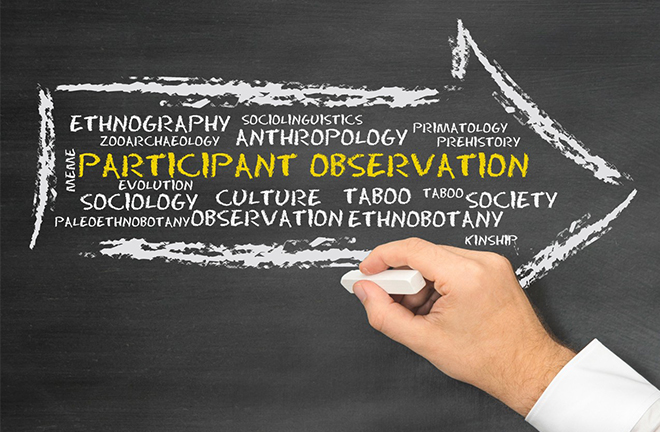Fieldwork remains irreplaceable amid rise of digital, intelligent research tools

Participant observation is an important research method commonly employed in fieldwork. Photo: TUCHONG
As digital technology and artificial intelligence (AI) continue to reshape the intellectual landscape, methods of inquiry and modes of understanding society are undergoing profound transformation. Social scientists must not only adapt to these changes and skillfully apply new technological tools, but also reflect on what methods and experiences remain distinctly human. While the application of AI in data analysis and complex modeling has brought about new breakthroughs in social science research, digital analysis cannot replace direct human observation of social reality. Nor can it replicate the uniquely human capacity for reflection and imagination in discerning the relationships between phenomena. By contrast, immersive fieldwork fosters deeper, more authentic understanding—both of society and of the self.
Experiential imagination arises from fieldwork
There is no denying that AI dramatically expands access to data and enhances researchers’ ability to gather and process information efficiently. Yet digital tools still fall short in cultivating the kind of experiential imagination that emerges from fieldwork. In entering the field, researchers must acclimate to a range of environments and situational dynamics. Engaging with people of varied professions, regions, and age groups, they are compelled to become temporary “insiders” in order to earn the trust and acceptance of their subjects. Through this process, they undergo shifts in perspective, gaining insight, empathy, and understanding grounded in authentic lived interaction.
German sociologist Hartmut Rosa has argued that the social acceleration of modern life produces a dissonance in people’s relationships with reality and with themselves. He advocates for cultivating emotional attunement with the people and things around us as a way to counteract alienation and anxiety. Human beings both crave and require genuine social connection. Fieldwork offers one such channel, helping researchers reconfigure their relationships with others—and with themselves—through meaningful, embodied interaction.
Chinese sociologist Fei Xiaotong upheld “seeking knowledge from reality” as a core principle of scholarship, emphasizing that all observation and description must be grounded in actual events. In an accelerating society marked by an information explosion, it is all the more necessary for researchers to step outside the ivory tower—and outside the screen—and enter the field, where they may confront emotional tensions, seek meaning, and engage the physical, embodied dimension of human life. These are essential facets of our humanity, and key to understanding the lived realities of others.
Deep immersion is the essence of fieldwork
American anthropologist Clifford Geertz’s concept of “thick description” could serve as an irreplaceable core approach to fieldwork: researchers must immerse themselves in the field and adopt the perspective of local residents to comprehensively grasp their lifeworlds, articulate their thoughts, and interpret the symbolic meanings embedded in those thoughts. Through such immersion, researchers can genuinely empathize with research subjects and gain rough yet authentic firsthand experience—something no digital tool can replicate. This firsthand exposure enables deep investigation of social realities and nurtures the kind of experiential imagination essential to social inquiry.
Though AI continues to expand the horizons of social science research, fieldwork as a classical methodology remains indispensable for exploring social civilizations and cultural psychologies. It enables researchers to enter others’ cultural worlds, directly experiencing the logic of survival and development, behavioral patterns, interpersonal relationships, lifestyles, and value systems as they arise from individuals’ interactions with their environments.
Much of what social science seeks to understand—those subtle and elusive cultural practices—resists the kind of precise measurement and modeling AI tools offer. Yet these very details are crucial to understanding local ways of life and tracking how societies evolve. Through interviews and observation, researchers examine the relationship between field experience and classical sociological theories, reflect on how to sustain dialogues that themselves constitute processes of cultural exchange and convergence, while incorporating their own intuitive values and emotional insights. This ultimately contributes to interaction and integration between people and culture, and between individuals and society at large.
Chen Siyu (associate research fellow) and Tian Mingxiao (research fellow) are from the Editorial Office of Zhejiang Academic Journal, published by Zhejiang Academy of Social Sciences.
Edited by WANG YOURAN
